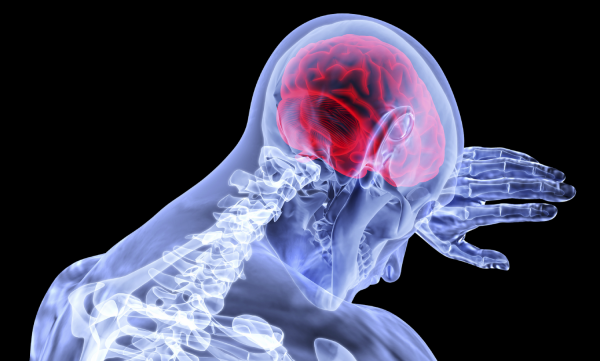Protein Found in Blood May Predict Prognosis, Recovery From Stroke
Biomarkers in the blood that may determine the extent of injury from different types of stroke and predict outcome in the patients, found by Mayo Clinic researcher from Florida. According to a release by Mayo Clinic, the blood biomarker is a protein known as neurofilament light (NFL) which is plentiful in neurons that can be found in the brain. When injured from a stroke or other neurological diseases, the NFL is released into the cerebrospinal fluid (CSF) that soaks the brain and then into the blood. According to the Mayo Clinic research team, the amount of NFL released indicates how worse the neuron injury in the brain is.

ALSO READ: Stroke: How it Happens and How to Stop it From Happening
According to the Centers for Disease Controls and Prevention (CDC), in their 2018 record, one in every six deaths from cardiovascular diseases was due to stroke. They added that every year, 795,000 people from the United States have a stroke and about 610,000 of these had a stroke for the first time. CDC furthered that 87 percent of all strokes in the United States are ischemic. In the release, Mayo Clinic said that stroke is a leading cause of death. However, they further said that symptoms vary widely from temporary, to severe, long-term impairment.
The first author of the study Tania Gendron, Ph.D. said that assessing the severity of a stroke and how well a person is expected to his/her recovery is very important to the patients and their beloved ones. She added that reliably predicting a patient's prognosis is vital to their care because they will know their treatment and rehabilitation decisions. She further said that the researchers would like to determine the amount of NFL present in the patient's blood because it can be used in predicting their prognosis after a stroke, whether it is ischemic which happens when the blood flow going to the brain is blocked, or hemorrhagic where a weakened vein ruptured.
Methods of the Study
According to the release by Mayo Clinic, the study involved participants who enrolled and donated blood to the Mayo Clinic Familial Cerebrovascular Diseases registry. The researchers used an investigative blood test in measuring the NFL concentrations from the blood of 314 patients who had a stroke and 79 healthy respondents. The release further said that this method enabled the researchers to determine if the NFL levels elevated after a stroke and whether the NFL levels can determine the severity and eventual recovery.
READ ALSO: Study Finds Abnormal Levels of Blood Pressure While Asleep Increase Risk of Heart Disease
According to one of the senior authors of the study, Leonard Petrucelli, Ph.D., they were able to find out that higher NFL levels conjecture worse functional outcomes and shorter survival time after a stroke. He further said that their research spearheads the NFL as a promising prognostic biomarker for stroke. Mayo Clinic Florida, Familial Cerebrovascular Diseases Director, James Meschia, M.D., said in the release that they are hopeful that their findings will finally change how patients will be treated using the NFL biomarkers in clinical trials to allow more rapid and reliable detection of therapeutic effects. He added that their findings might also aid in planning better rehabilitation needs for patients who need the treatment most for the longer-term.
READ NEXT: Study Says More Wine, Coffee, and Leafy Veggie Can Lower Stroke Risk, Cardiovascular Disease
Check out more news and information on Stroke on MD News Daily.
Nov 13, 2020 12:00 PM EST





